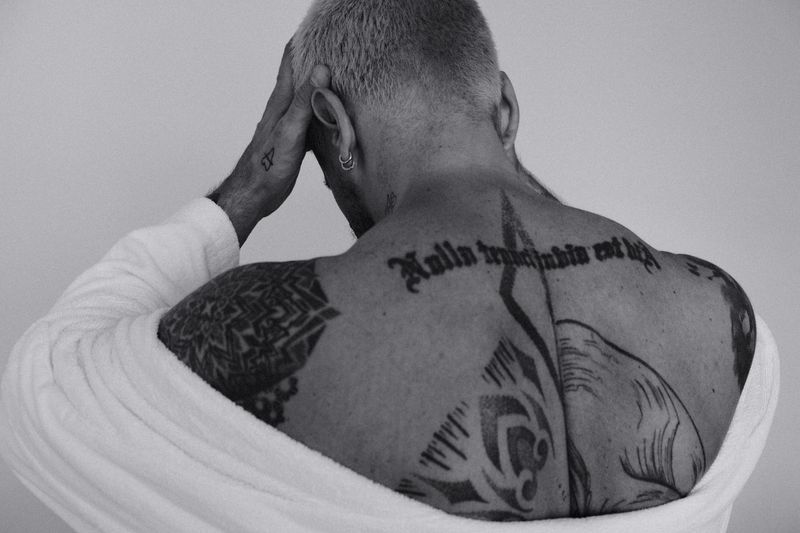- The Supreme Court Blocks Student Loan Forgiveness Plan, Leaving 1.4 Million Texans in Debt
- You might want to read !
The Supreme Court Blocks Student Loan Forgiveness Plan, Leaving 1.4 Million Texans in Debt
A Blow to Biden‘s Agenda
The U.S. Supreme Court delivered a significant blow to President Joe Biden‘s agenda on Friday, ruling that his administration’s student loan forgiveness plan is unconstitutional. The decision affects nearly 1.4 million Texans who were poised to have some or all of their student debt canceled by the federal government. In a 6-3 ruling, the court sided with the six GOP-led states that alleged Biden overstepped his authority as president with the loan forgiveness plan.
Unconstitutional Loan Forgiveness Plan
The court’s ruling was based on the argument that Biden did not have the authority to issue the forgiveness plan under the Higher Education Relief Opportunities for Students Act (HEROES Act). Chief Justice John Roberts, writing in the majority opinion, stated that while the HEROES Act allows the Secretary of Education to “waive or modify” existing provisions, it does not give the Secretary the power to cancel $430 billion of student loan principal. This ruling means that all students with debt, including those in Texas, will need to resume repaying their loans in October.
Impact on Texans
Texas has 3.8 million residents with student loan debt totaling $127.3 billion, making it the second-highest state in terms of borrowers and debt, following California. Graduates from four-year public universities in Texas had an average of approximately $25,000 in student debt in 2021. Biden‘s plan would have particularly impacted low-income borrowers and people of color, who are more likely to qualify for federal financial aid and carry higher amounts of student loan debt.
Philosophical Debate over Loan Forgiveness
The Supreme Court’s decision highlights the ongoing philosophical debate surrounding student loan forgiveness. Supporters argue that student debt is a significant barrier to economic mobility and holds back graduates from pursuing higher education or making other financial investments. They argue that loan forgiveness would help stimulate the economy and reduce inequality. On the other hand, opponents, mostly Republicans in this case, contend that loan forgiveness is unfair to those who have already paid off their loans and that it could worsen inflation and burden taxpayers who did not attend college.
Editorial: Balancing Individual Responsibility and Societal Investment
The debate over student loan forgiveness raises fundamental questions about the role of education in society, the responsibilities of individuals, and the role of government. It is essential to strike a balance between individual responsibility and societal investment. While it is reasonable to expect individuals to take on some responsibility for their education-related debt, it is also crucial for the government to provide pathways to higher education and career training that are accessible and affordable for all.
Addressing the Student Debt Crisis
The student debt crisis is a pressing issue that demands attention and action. Policymakers must find comprehensive solutions that address the root causes of rising tuition and the burden of student loans. This could include initiatives such as expanding access to affordable higher education, increasing funding for Pell Grants, and implementing income-driven repayment plans that alleviate the financial burden on borrowers.
The Importance of Public Comment Periods
One aspect of the court’s decision focused on the lack of a public comment period for individuals to voice their disagreement with the eligibility criteria of Biden‘s loan forgiveness program. Justice Elena Kagan, in her dissenting opinion, argued that the Secretary of Education acted within the authority granted by Congress under the HEROES Act. However, the requirement for public comment periods remains crucial as it ensures transparency, accountability, and an opportunity for input from affected individuals.
The Role of Congress in Decision-Making
The Supreme Court’s ruling emphasizes the importance of Congress in making fundamental decisions that transform federal student-loan policy. The Framers of the Constitution designed the American system to ensure that such decisions are debated and decided collectively by elected representatives. While the court has a role in interpreting the constitutionality of executive actions, it ultimately defers to Congress on matters of policy and legislation.
The Future of Student Loan Forgiveness
The Supreme Court’s decision does not mark the end of the debate on student loan forgiveness. President Biden has expressed his disagreement with the ruling and plans to release details about his administration’s next steps to provide student loan relief. It is crucial for lawmakers and policymakers to continue exploring alternative approaches to addressing the student debt crisis and finding solutions that balance individual responsibility and societal investment in education. Ultimately, the goal should be to create a system that ensures access to quality education without burdening individuals with overwhelming debt.

<< photo by Maria Geller >>
The image is for illustrative purposes only and does not depict the actual situation.
You might want to read !
- Tackling Accountability: Travis Scott Spared Criminal Charges in Astroworld Tragedy
- Livestream Showdown: Haiti vs. Mexico in CONCACAF Gold Cup
- Dylan Mulvaney’s Candid Response to Bud Light Controversy: A Reflection on Free Speech and Corporate Accountability
- The Future of Student Loan Forgiveness: Examining the Implications of the Supreme Court Ruling
- Astroworld tragedy: Examining the legal implications of the grand jury’s decision
- Editorial Exploration: Analyzing the causes and consequences of France’s ongoing protests
Title: “Unrest Ignites France: A Deep Dive into the Ongoing Protests”
- Supreme Court Strikes Down Use of Affirmative Action, a Blow to Equal Opportunity
- Supreme Court strikes down use of affirmative action, a blow to diversity and equal opportunity
- “Redefining Diversity in Higher Education: The Supreme Court’s Landmark Decision on Affirmative Action”
- Compassion and Recovery: Pete Davidson Seeks Support in Rehab
- “Michael Peña’s Gutsy Leap: Overcoming Fear to Embrace the Iconic Jack Ryan Role”
- “Addressing Backlash: Dylan Mulvaney Responds to Controversy Surrounding Bud Light Partnership”
- “CONCACAF Clash: Mexico vs. Haiti Live Stream – Who Will Secure Victory?”




